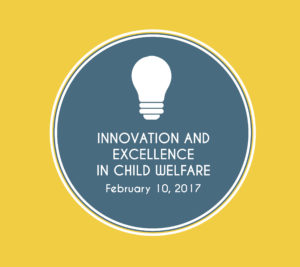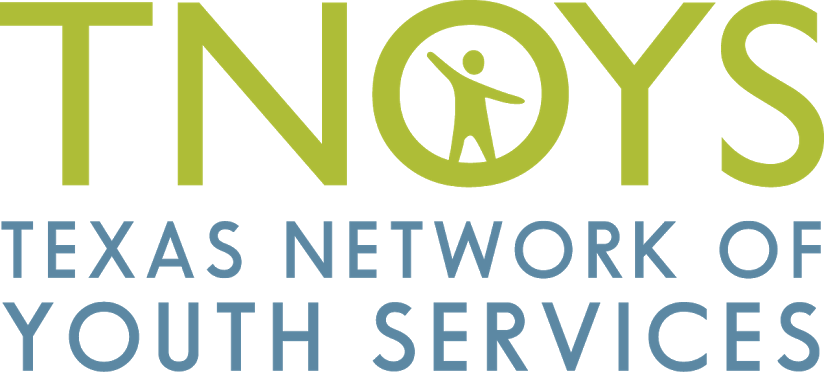 There have been a lot of headlines recently about the need to fix Texas’ child welfare system, but it’s also important to recognize that there are many organizations across the state that are leaders in implementing best practices to keep youth and families healthy and happy. Last week, TNOYS brought several of these organizations together in Austin to share these best practices with legislators and other decision-makers who are currently working on policy to enhance Texas’ youth and family services.
There have been a lot of headlines recently about the need to fix Texas’ child welfare system, but it’s also important to recognize that there are many organizations across the state that are leaders in implementing best practices to keep youth and families healthy and happy. Last week, TNOYS brought several of these organizations together in Austin to share these best practices with legislators and other decision-makers who are currently working on policy to enhance Texas’ youth and family services.
In fact, we had so many organizations with excellent stories to share that we set up the event in a “shift and share” format, where attendees broke into group and spent ten minutes hearing from the various organizations on a series of topics. This allowed the audience to be exposed directly to providers from more than a dozen organizations and have smaller, more personal discussions about their work.
Prevention and Early Intervention
The first topic discussed was prevention and early intervention services. Angela Bulls of STARRY spoke about the importance of Texas’ STAR program, which provides free prevention and early intervention services to any child in Texas, in order to help alleviate family tension before it reaches a crisis level. You can learn more about this program here. SAFE Austin spoke about the importance of advocating among policymakers for even more funding for these critical prevention and early intervention services.
Trauma-Informed Care
Unfortunately, not all issues can be prevented before they start, and some youth end up experiencing trauma that can make later treatment challenging. Several organizations shared how they have taken steps to better incorporated trauma-informed care into their work, to prevent re-traumatizing clients. Julie Strentzsch, program officer at Roy Maas Youth Alternatives (RMYA), shared how RMYA reduced instances of restraint, which is often a traumatizing experience, at its residential treatment center by 50 percent. They did that by adjusting their training, increasing staffing, and ensuring they had the right leadership in place.
Austin Child Guidance Center echoed the need to look at the organization as a whole when trying to prevent re-traumatization of clients – from intake processes to staffing to facility policies. Speakers from ACGC also stressed that trauma-informed care must be viewed as a living project – processes must be evaluated regularly and constantly updated to ensure they’re working as needed. Click here to learn more about trauma-informed care and seclusion and restraint reduction.
Program Growth and Sustainability
Next, the group moved on to a focus on program growth and sustainability. LifeWorks, an Austin-based organization with a strong housing program for transition-age youth, spoke specifically about how to build a housing program. Erin Whelan of LifeWorks stressed the importance of persevering when working on such an ambitious project, noting that it took LifeWorks several decades to get their housing program of the ground. She also discussed starting with a well-documented need in the community and a detailed plan for how to address it, looking to a diversity of funding resources to get what you need, and having a strong community partnerships.
John Bracken of Montgomery County Youth Services talked about the benefits – and challenges – of collaboration in building programs. He pointed to how MCYS partnered with CASA, Angel Reach, and the United Way in the Conroe area to create a resource center for young adults experiencing homelessness in the area. Bracken shared how despite differences in ideology and approach among the different organizations involved, they have worked together to build an incredibly successful program that served 173 young adults in the last month alone.
Youth Engagement
The event ended with a discussion of the importance of youth engagement in services for youth and families. Salvation Army of Greater Houston spoke about lessons learned from serving homeless youth who were left behind in Houston by their families after Hurricane Katrina, listing trust, respect, personalization, and peer interaction as key elements of successful youth engagement programs. TNOYS’ own Elizabeth Flint also shared about lessons learned from PEAKS Adventure Camp, one of TNOYS’ longest-running and most successful youth engagement programs that serves as a learning opportunity for both the youth and adult providers that participate. For more information on best practices in youth engagement, check out our youth engagement toolkit.
We mentioned just a few of the great organizations that were able to join us for this event today, but are grateful to all of the participants for sharing about their innovative practices with our attendees. Check out the event agenda for a full list of all of the speakers and organizations that were involved.
